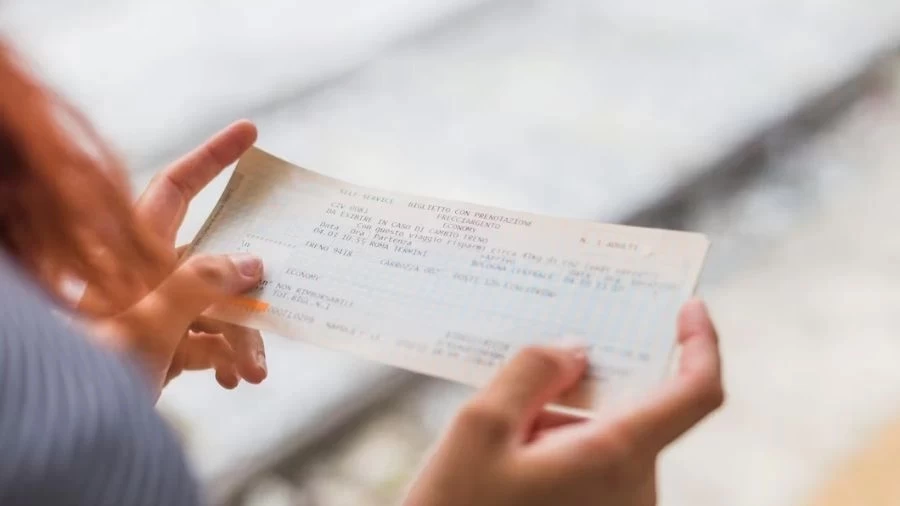
What is a Bounced Check? What Happens When Your Cheque Bounces?
A bounced check occurs when a written check cannot be honored due to insufficient funds, leading to financial penalties, credit score damage, and potential legal consequences.
by Kowsalya
Updated Dec 16, 2023
On This Page
What is a Bounced Check?
A bounced check occurs when the writer lacks sufficient funds in their account to cover the specified payment, leading the bank to reject the check. This results in non-sufficient funds (NSF) fees for the account holder.
Beyond fees, consequences may include overdraft fees, restrictions on check-writing, negative impacts on credit scores, and potential legal implications. To avoid bouncing checks, individuals can use overdraft protection, closely monitor account balances, and consider alternative payment methods.
What Happens When Your Cheque Bounces?
When a check bounces, it means the account lacks sufficient funds to cover the payment, leading the bank to reject the check. This results in non-sufficient funds (NSF) fees for the account holder. Besides bank fees, the payee may charge additional fees and report the issue to organizations like ChexSystems, impacting the individual's ability to open future accounts.
Consequences may include overdraft fees, credit score reduction, and potential legal repercussions. To avoid bounced checks, individuals can monitor balances, use overdraft protection, or opt for alternative payment methods.
How Will I Know if a Check Bounces?
Knowing if a check has bounced can take days to weeks, depending on various factors. When a check bounces, it means there aren't enough funds in the writer's account. Financial institutions and merchants may not immediately detect this, and the check-clearing process determines its validity. The time frame for a check to bounce varies, often within a week or less.
Banks may release a portion of the funds the next business day, but the full clearance can take longer. It's crucial to monitor transactions, as banks aren't obligated to notify account holders of bounced checks.
Bounced checks can incur fees for both the writer and recipient, impacting financial histories and potentially leading to account closures. To avoid such issues, individuals should write checks based on available balances, use account alerts, and consider linking accounts for overdraft protection.
Navigate the world of Banking with ease on MarketsHost, your resource for Credit Cards, Loans, and financial insights.
What is the Penalty for Bounced Cheque?
The penalty for a bounced cheque, commonly known as a non-sufficient funds (NSF) fee, is charged by the bank when the account holder does not have enough funds to cover the payment.
This fee varies among banks but typically ranges from around $25 to $35. In addition to the bank's charge, the payee, such as a merchant or individual, may also impose their own fees. Bouncing a cheque can lead to various consequences, including negative impacts on credit scores, restrictions on writing additional checks, and potential legal repercussions, depending on the severity of the situation.
How You Can Recover From a Bounced Check?
Bouncing a check can be a stressful experience, but there are steps you can take to recover from this situation. Here's a guide on what to do if you find yourself in such a predicament:
Contact the Payee Promptly
Reach out to the person, business, or organization that attempted to cash your bounced check. Whether it's a friend, family member, landlord, or utility company, communicate the situation early on to avoid misunderstandings and address the issue.
Cover the Bounced Payment
If the bounced check was an oversight, attempt to cover the payment as soon as possible. If you lack the funds, discuss your financial hardship with the recipient. They might be willing to work out a payment plan or offer assistance.
Negotiate Overdraft Fee Forgiveness
Contact your bank and inquire about the possibility of having the overdraft or insufficient funds (NSF) fee forgiven, especially if it's your first instance. Some banks may be lenient, but if bouncing checks is a recurring issue, be prepared to address the fees.
Pay Outstanding Fees
If the bank is unwilling to waive the fees, consider paying them to maintain a positive standing. Explore other banking options if you find lower overdraft fees elsewhere.
What is a Bounced Check - FAQs
1. What is a bounced check?
A bounced check occurs when there are insufficient funds in the writer's account to cover the specified payment.
2. What are the consequences of a bounced check?
Consequences include financial penalties, damage to credit scores, and potential legal trouble for intentional bad checks.
3. How can I recover from a bounced check?
Steps include contacting the recipient, covering the payment, discussing financial hardship, and contacting the bank for fee resolution.
4. How can I avoid bounced checks?
Preventive measures include monitoring balances, maintaining a check register, using online banking, and reducing check usage.
5. Why do checks frequently bounce?
Common reasons include insufficient funds, stale-dated checks, errors in check details, account closures, and stop payment orders.




